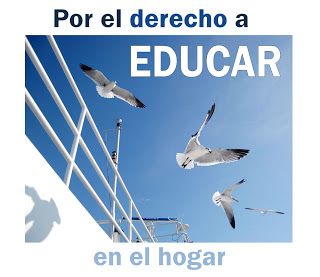Last week Sophie (8) and Charis (6) had a tour around their respective new schools, which they’ll be starting in September. I think I was more nervous and apprehensive than they were! I’m a homeschooler at heart, but for various reasons it seemed the right thing to do to put the girls into mainstream school during this year of transition. However, I can’t get rid of this anxious concern of "Will they measure up OK? Have I done a good job or will they be way behind their peers? Have I been a good advert for the homeschooling cause?"
I’m sure I’ll be writing a lot on this general topic over the coming few months,
but in this post I’d like to focus in on the concern I have about their writing skills, and by that I mean their ability to formulate their thoughts into written words and write in sentences, not the way they form their letters.
but in this post I’d like to focus in on the concern I have about their writing skills, and by that I mean their ability to formulate their thoughts into written words and write in sentences, not the way they form their letters.
You see, up to now we’ve been very happily following a homeschooling curriculum, called Ambleside Online, which is based on Charlotte Mason’s methods of education. When I think about my girls going into mainstream school, I can foresee two potential areas of where the school might have a different approach to the one my girls have been used to: 1) writing ‘creatively’ and 2) spelling.
Creative Writing
In the Ambleside Online curriculum, children start with oral narration (telling back verbally what they’ve heard or seen), and it’s not until they’re about ten years old that they begin written narration. The expectation is that this should lead quickly to ‘creative writing’. However, Charlotte Mason didn’t require the children to come up with too much ‘original’ work at an early age. It was mostly dictations or narrations from what had been read or observed. Before the age of ten children practise their writing by doing daily copywork exercises.
“They should narrate in the first place and they will compose, later, readily enough, but they should not be taught 'composition.'” Vol 1 of Home Education, pg 247
Worried that Sophie, in particular, would flounder when asked to write something original in her exercise book during a lesson at school, I decided to encourage her to keep a little diary of her exploits over the summer. We’ve already missed a few days, but I’m hoping that by practising this a few times a week she’ll gain a little more confidence in writing down her thoughts rather than just copying a text in front of her. Diary-keeping, of course, is a form of written narration since she is recounting what she did and saw.
Spelling
I don’t yet know what the school policy is in regard to spelling, but I suspect that a teacher in charge of 30 pupils won’t have time to correct each spelling mistake the moment it occurs. Charlotte Mason didn’t like the child to get used to seeing a word misspelled, and the teacher/parent was supposed to erase the word as soon as possible before bad spelling habits were lodged in the child’s mind:
“The teacher's business to prevent false spelling, and, if an error has been made, to hide it away, as it were, so that the impression may not become fixed...”
Charlotte didn’t advocate writing out a word 10 times from a spelling list. Instead, she wanted the child to focus on the written word in front of them until they thought they could ‘see’ it in their mind’s eye. Then cover up the word and get them to spell it out orally, then perhaps write it out once.
“Once the eye sees a misspelt word, that image remains; and if there is also the image of the word rightly spelt, we are perplexed as to which is which...”
Up to now, in our homeschool, when the girls have needed to write, for example, a thank you letter back to their grandparents, I’ve always dictated or written out clearly what they were going to write and then got them to copy (like doing copywork). I didn’t make my child ‘guess’. The only times I’ve turned a blind eye to misspelled letters is when the girls have written something on their own initiative outside of ‘school’ and presented it to me, for example a card or a comment on a picture. In those situations I’ve felt it more important not to quash their enthusiasm. If they’ve written something longer, for example Charis loves to write emails to people, then I might point out one or two main spelling issues just to make the letter a bit more understandable to the person who would be reading it, but I let the rest go. But generally, their habit is always to check with me first a word they’re not sure about rather than just guessing and trying to write it phonetically, which we all know doesn't work too well in English!
I don’t know if this habit will hold them back in mainstream school, and whether or not it will be a problem. I suspect they will write more slowly and be more unsure about their writing than their peers. I wonder too how the different approach to spelling will work. I hope to continue using the art of 'visualisation' when we receive those spelling lists from their class teacher.
Supporting From Home
Supporting From Home
Of course, there are many other things I can continue to do with my girls, despite no longer homeschooling ‘full-time’, and one of those is to keep on reading quality books to them that challenge and inspire them. I’ll leave you with an appropriate comment on this from Charlotte Mason herself which I really love:
"Writing, of course, comes from reading, and nobody can write well who does not read much."
Qu: Has your homeschooled child spent some time in a mainstream school? I'd love to hear your thoughts about the particular challenges you faced and how you overcame them.
Abide in Him!

Are you new to Grace to Abide? Keep updated with each new post via email, facebook or twitter.
(Apologies that I was not able to find the exact references for several of the above quotes.)
Photo credit: freedigitalphotos.net / stockimages
Grace to Abide will be taking a few weeks off over the summer, but we'll be back soon!





























